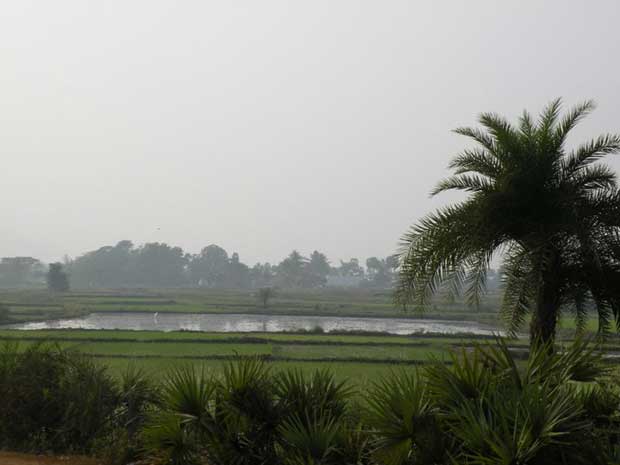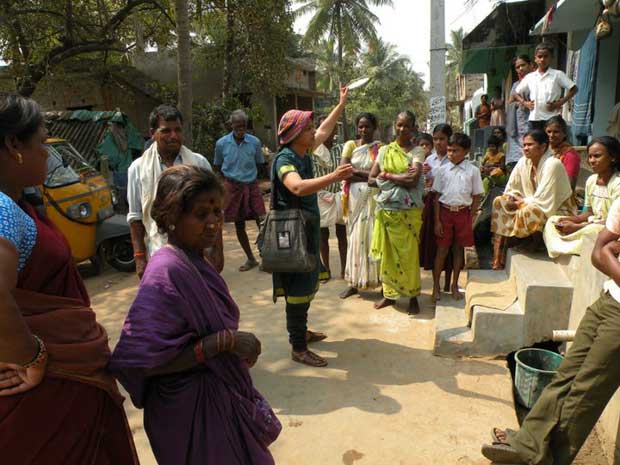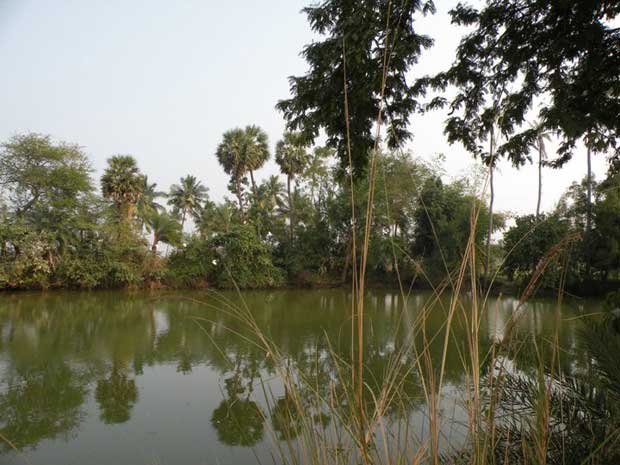Wetlands Are Not Wastelands!
By Marianne de Nazareth
03 March, 2011
Countercurrents.org

It’s a constant battle to save wetlands everywhere in the world by environmentalists, with the galloping pressure of human populations exploding by the minute. With industrialization too land use patterns are changing and wet and marshy lands which are considered wasteland by the common man are being dredged and built over. It is in the hands of environmentalists and the media to educate policy and decision makers about the importance of these wetlands and the need to preserve them.
To define a weland : Wetlands are the transitional area between aquatic and oceanic areas and dry terrestrial ecosystems. The Ramsar Convention has defined wetlands as "areas of marsh, fen , peatland or water, whether natural or artifical, permanent or temporary with water that is static or flowing, fresh, brackish or salt, including areas of marine water the depth of which at low t ide does not exceed six meters". Wetlands include, marshes, swamps, open water bodies, mangroves, tidal flats and salt marshes which exist in every country.
Questions abound as to why it is necessary to save a wetland. In India, they are were regarded as ‘wasteland’ to the common man.Wetlands however are integral to a healthy environment,as they help to retain water during dry periods, thus keeping the underground water table high and relatively stable. During periods of flooding, they help to reduce flood levels and to trap suspended solids and nutrients before they flow directly into lakes.
Therefore they act like a live filter and the removal of such wetland systems because of urbanization or otherwise causes the quality of water in the lakes to degenerate. In addition, wetlands are important feeding, breeding and drinking areas for wildlife and are home to large numbers of migratory water birds. As with any natural habitat, wetlands are important in supporting the diversity of species and have a complex and important part to play in the food chain. In a recent millenium assessment of ecosystems, freshwater biodiversity has been placed on the top as the most threatened of all types of biodiversity due to vanishing wetlands.

Saraswati speaking to villagers about wetland
The value of wetlands is now being brought home to the common man through activists and environmental journalists like us in India. That is why Saraswati Kavula an environmental activist rushed out to Kakrapalli village in Andhra Pradesh, India, to lend support to the villagers when they were protesting loss of wetlands in their village.
The villagers have been protesting peacefully against the construction of 2400 MW of Coal Fired Thermal Power plant of M/s East Coast Energy Pvt. Ltd since August 2010. “Instead of listening to the peoples requests, the police have been set on them and they are going from door to door beating up the villagers,” said Saraswati Kavula Joint Convener National Alliance of People’s Movements (AP Chapter) her voice shrill with emotion.
“The entire project has been given permission by suppressing the facts about the Naupada Wetlands in Srikakulam District calling them ‘wastelands’ and not an important biodiveristy hotspot that they really are.”
The disputed site of M/s East Coast Energy Pvt. Ltd which is setting up a 2460MW Coal fired thermal power plant is located within the internationally recognised Wetland system of Naupada swamps and just 2.5 kms away from an Important Bird Area Site (IBAS) Telineelapuram.The birds of Telineelapuram have been declared endangered species and recorded in the Red Book of IUCN (International Union for Conservation of Nature). Therefore, according to environmental laws of India and the RAMSAR Convention to which India has been a signatory, Wetlands are protected areas, where no polluting activity can be taken up.
“Every year, Siberian birds come to live here. More importantly, about 18 village panchayats with a population of a few thousand households will be losing their livelihood with this construction. Though it is illegal according to Indian law to construct anything on a wetland, they have got the permission and all enviro clearances. When the issue came up in court, the court said, "well since they have already constructed in the 1000 acres, let them leave the rest of the area as it is and continue to complete the project," revealed Saraswati.

In the last monsoon, when the outlets to the sea got blocked due to the construction, the excess water could not go out, and flooded the region and submerged nearly 3000 acres of crop land. The inland fishermen who lived by fishing in the wetland - now don't get any fish as the fish grow only in a mix of the fresh and sea water. Many began to starve, so the local farmers began to stop the car of the Senior General Manger and his colleague when they visited the project area. The local people also started a relay hunger strike which is already into its 150th day.
Saraswati and her colleagues have now written to the Chairperson, Andhra Pradesh Human Rights Commission, Hyderabad and hopes justice will be done.
(The writer is adjunct faculty, St. Joseph’s College and COMMITS, Bangalore and a media fellow with UNFCCC, UNEP and Robert Bosch Stiftung)
Comments are not moderated. Please be responsible and civil in your postings and stay within the topic discussed in the article too. If you find inappropriate comments, just Flag (Report) them and they will move into moderation que.


